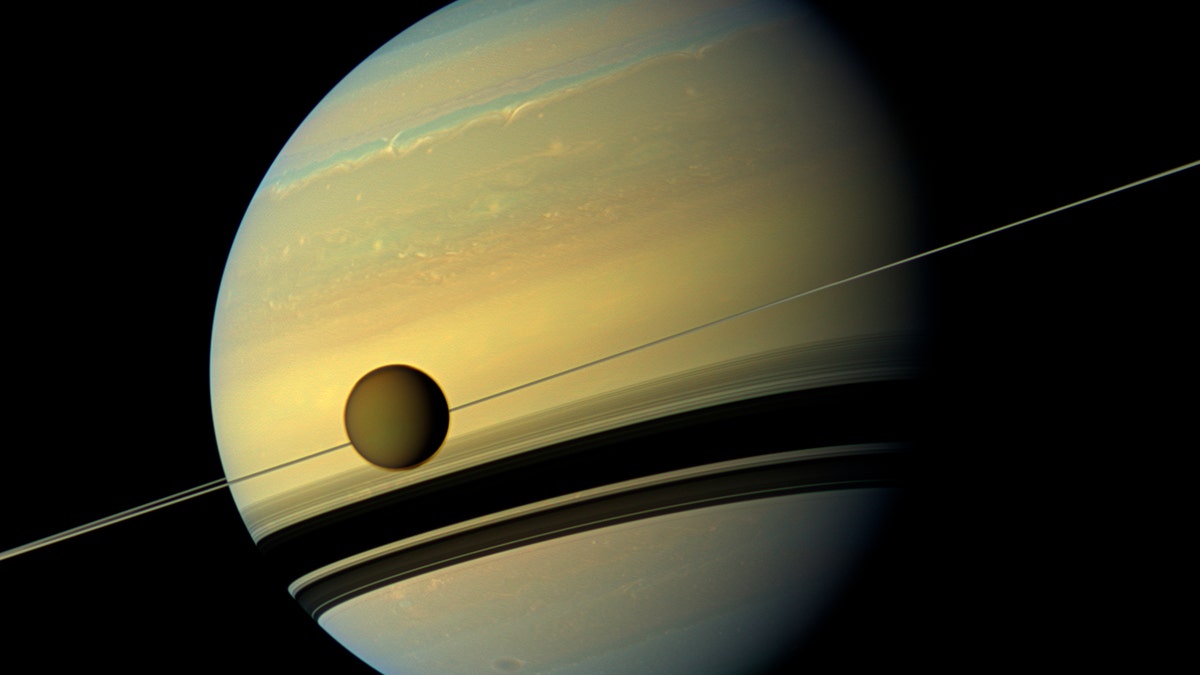
Titan, Saturn's largest moon appears before the planet as it undergoes seasonal changes in this natural color view from NASA's Cassini spacecraft in this handout released by NASA August 29, 2012. (REUTERS/ NASA/JPL-Caltech/SSI)
While scientists see Jupiter’s moon Europa and Saturn’s moon Enceladus as prime candidates for life away from Earth, Cornell University researchers are eying Titan, another moon around Saturn and its biggest, as a place that could possibly be home to the chemical precursors for life.
Titan is a very cold place, and instead of water on the surface, there is liquid methane and ethane; its atmosphere is full of nitrogen and methane. But in a new study, scientists look at the presence of hydrogen cyanide in the planet’s atmosphere and speculate that it could become a chemical called polyimine on the surface— and that could possibly lead to what the study calls “prebiotic chemistry.”
The study’s lead author, Martin Rahm, a research associate at Cornell, said that since Titan is so different from Earth, it doesn’t make sense to think about the presence of traditional biology as we know it on the Saturnian moon.
“We are used to our own conditions here on Earth,” he said in a statement. “Our scientific experience is at room temperature and ambient conditions. Titan is a completely different beast.”
Related:
Polyimine, which can be formed by hydrogen cyanide, is capable of doing interesting things in the conditions found on Titan, Rahm said.
“We need to continue to examine this, to understand how the chemistry evolves over time. We see this as a preparation for further exploration,” he added. “If future observations could show there is prebiotic chemistry in a place like Titan, it would be a major breakthrough. This paper is indicating that prerequisites for processes leading to a different kind of life could exist on Titan, but this [is] only the first step.”
Titan is 3200 miles across, and could have a subsurface ocean made up of water and ammonia. The study focused on the moon's chemistry was published recently in the journal PNAS.








































